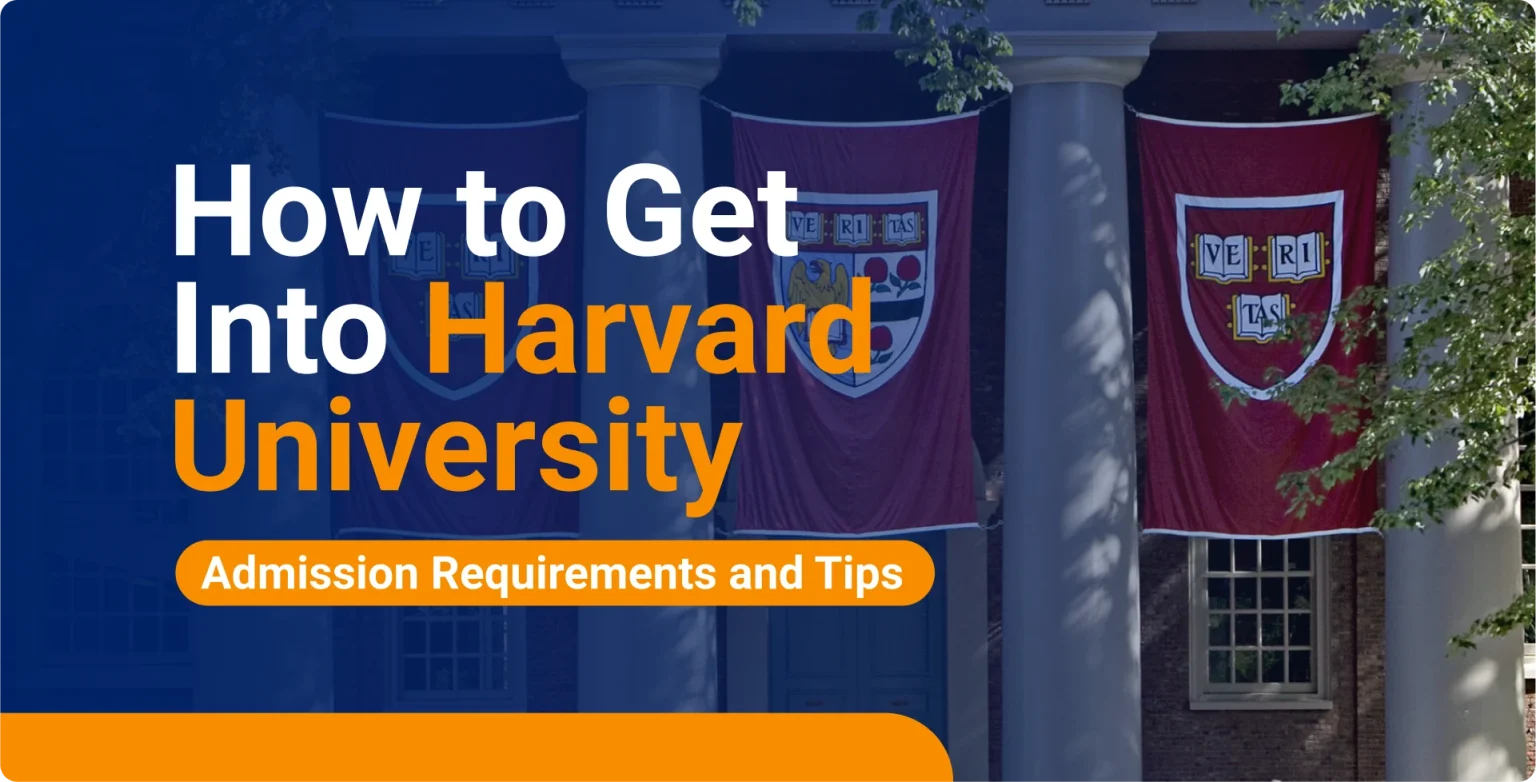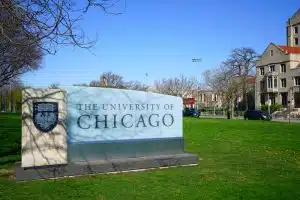Getting into Harvard University is simply tough. Ranked 3rd in the US News and World Report and 4th globally in the latest QS World University Rankings, Harvard’s reputation for academic excellence and producing top leaders in nearly every field makes it one of the most sought-after schools in the world. With an acceptance rate sitting at just 3.6% for the Class of 2028, competition is intense. Still, it’s not impossible if you know what you’re doing and take the right steps to stand out.
Figuring out how to get into Harvard means understanding the school’s expectations and having a strategy that sets you apart from the crowd. In this blog, we’ll break down what Harvard looks for—from academic benchmarks to ways you can give your application that extra edge.
- How Hard Is it to Get into Harvard?
- Harvard Admission Requirements
- What GPA Do You Need to Get into Harvard?
- What SAT Score Is Required for Harvard?
- What Is a Good ACT Score for Harvard?
- How to Increase Your Chances of Getting into Harvard
- Harvard Application Deadlines
- Frequently Asked Questions
- Takeaways
How Hard Is it to Get into Harvard?
Getting into Harvard is not getting any easier. In the latest admissions cycle, Harvard received a staggering 54,008 applications but only accepted 1,937 students. That’s an acceptance rate of just 3.6%. Out of that, 692 students were admitted through Early Action, and 1,245 made it in through Regular Decision.
To give you some perspective, here’s how Harvard’s acceptance rates have evolved over recent years:
| Class | Acceptance Rate |
| Class of 2024 | 4.9% |
| Class of 2025 | 3.4% |
| Class of 2026 | 3.1% |
| Class of 2027 | 3.4% |
| Class of 2028 | 3.6% |
As you can see, Harvard’s acceptance rates have been steadily declining. While the 3.6% for the Class of 2028 is a slight bump from the previous year, it’s still way lower than the nearly 5% acceptance rate seen for the Class of 2024.
Harvard uses a holistic admissions process, meaning they look at more than just your GPA and test scores. Everyone in the applicant pool has great grades—as you will see later—so what really sets you apart is your extracurriculars and application essays.
The bottom line: the acceptance rates are intimidating, but what Harvard really wants is to see the person behind the numbers. It’s all about telling your story and making them see why you belong in their community.
Harvard Admission Requirements
To apply to Harvard, you must submit your application through either the Common Application or the Coalition Application. Once you’ve submitted your materials, you can track everything in the application portal, where you’ll also be able to update your application if needed.
Harvard’s admissions process is thorough and involves a few key elements that all work together in a holistic review. Here’s what Harvard looks for:
- Transcript of records. Your academic performance—grades and GPA—are key here.
- Letters of recommendation. You’ll need two letters from teachers and one from your counselor.
- Standardized test scores. You’ll have to submit either SAT or ACT scores.
- Essays. You’ll submit a personal statement, plus five short supplemental essays (each 150 words or less).
- Extracurriculars. Harvard loves seeing students who are passionate and deeply involved in activities outside the classroom.
- Interview (optional). Alumni may offer interviews, but not everyone gets one.
Additionally, Harvard considers other factors that might come up in your application:
- Course rigor. Did you challenge yourself with tough courses like AP or IB?
- Talent/ability. Do you have any special skills or stand-out talents?
- Character/personal qualities. Harvard values traits like leadership, resilience, and integrity.
- First-generation status. Being the first in your family to attend college is a plus.
- Alumni relations. If a family member went to Harvard, it could help your case.
- Geographical residence. Harvard wants students from all over the world, so where you live can matter.
- Volunteer/work experience. What have you contributed to your community or the workplace?
Interestingly, Harvard doesn’t weigh factors like class rank, state residency, religious affiliation, or how much you’ve shown interest in the school.
While not required, Harvard also recommends taking these subjects in high school:
- 4 years of English
- 4 years of Mathematics
- 4 years of Science
- 4 years of Foreign Language
- 3 years of Social Studies
- 2 years of History
Next up, we’ll focus on the details of the main admission requirements to help you understand exactly how to get into Harvard.
What GPA Do You Need to Get into Harvard?
Wondering how to get into Harvard? Well, your GPA plays a huge role in the admission process.
While there isn’t an official minimum GPA requirement, you need to take the competition into account. According to Harvard’s Common Data Set for 2023-2024, the average GPA for admitted students is 4.2. To stand out, you should aim for at least a 4.2 or higher.
Another factor to keep in mind? The rigor of your classes. Harvard looks at both weighted and unweighted GPAs. A weighted GPA considers the difficulty of your coursework, which is why the average goes above 4.0. Harvard wants to see that you’re pushing yourself academically, so take challenging courses like AP, IB, or honors classes.
When it comes to unweighted GPAs, about 74% of admits have a perfect 4.0, while roughly 20% fall between 3.75 and 3.99. Meaning, around 94% of accepted students have an unweighted GPA of 3.75 or higher. Even though Harvard doesn’t officially consider class rank, 94% of admits are in the top 10% of their graduating class. It’s pretty clear: the competition is intense.
What to do if your GPA is below average
But what if your GPA isn’t hitting that high mark? No need to panic. While it might hurt your chances a bit, it doesn’t mean you’re out of the running. This is where Harvard’s holistic review process comes in.
If your GPA is on the lower side, you’ll need to shine in other areas of your application. Standout extracurriculars, leadership roles, impressive personal essays, and glowing letters of recommendation can all help balance out a slightly lower GPA. Harvard looks at the whole package, so being strong in these other aspects can still give you a solid shot.
What SAT Score Is Required for Harvard?
Just like with GPA, Harvard doesn’t have a minimum SAT score, but you’ve got to keep the competition in mind. For the Class of 2027, the SAT scores of admitted students ranged from:
| 25th Percentile SAT Composite Score | 50th Percentile SAT Composite Score | 75th Percentile SAT Composite Score |
| 1500 | 1550 | 1580 |
If you’re aiming to stand out, shooting for a 1580 or higher is your best bet—that puts you in the top 25% of those who made the cut. Let’s break down Harvard’s typical SAT scores a little bit more:
| Section | 25th Percentile Score | 50th Percentile Score | 75th Percentile Score |
| SAT Evidence-Based Reading and Writing (EBRW) | 740 | 760 | 780 |
| SAT Math | 760 | 790 | 800 |
Over 92% of admitted students scored between 700 and 800 on the EBRW section, and 96% were in the same range for Math. Basically, to stay competitive, you’ll want to aim for a total score between 1500 and 1580, with at least 700 in both sections. But really, the best target is hitting the 75th percentile.
Now, a high SAT score definitely gives your application a boost, but it’s not everything. Remember, Harvard’s admissions process is holistic. Think extracurriculars, leadership, and personal essays. So even if your SAT score isn’t perfect, say in the 1500 range, you can still get in if the rest of your application is exceptional.
Harvard’s test policy
Harvard went test-optional during the pandemic, but starting with the Class of 2029, they’re bringing back standardized testing. Faculty of Arts and Sciences Dean Hopi E. Hoekstra explained the return by saying that standardized testing is “a means for all students, regardless of their background and life experience, to provide information that is predictive of success in college and beyond.”
So, if you’re applying in the future, make sure those test scores are strong. For the Class of 2027, about 52% of applicants submitted SAT scores, and moving forward, submitting solid SAT results will again be a key part of getting into Harvard.
What Is a Good ACT Score for Harvard?
The ACT is another way to show off your academic readiness. For the Class of 2027, the ACT scores for admitted students ranged from 34 to 36. So, if you’re aiming for Harvard, you should set your sights on the upper end of that range—a perfect 36 will put you in the top 25% of admitted students.
Here’s a quick breakdown of what ACT scores look like for Harvard admits:
| 25th Percentile ACT Composite Score | 50th Percentile ACT Composite Score | 75th Percentile ACT Composite Score |
| 34 | 35 | 36 |
In particular, most admitted students score close to perfect in all sections:
| Subject | 25th Percentile Score | 50th Percentile Score | 75th Percentile Score |
| ACT Math | 33 | 35 | 36 |
| ACT English | 35 | 35 | 36 |
| ACT Reading | 34 | 35 | 36 |
| ACT Science | 33 | 35 | 36 |
Nearly every admitted student—99.4% to be exact—scored between 30 and 36 on the ACT composite. To stand out, you really want to aim for a 36, especially with Harvard’s highly competitive applicant pool.
As mentioned earlier, Harvard will officially require standardized test scores again starting with the Class of 2029. Like the SAT, Harvard sees tests like the ACT as useful tools for predicting your success in college. So, a high ACT score is definitely an asset when you’re applying.
Does Harvard prefer the ACT or SAT?
Harvard doesn’t play favorites between the ACT and SAT. You can submit either one since both cover similar academic ground. That said, more students submit SAT scores than ACT scores—around 52% submitted SAT scores, while only 22% submitted ACT scores for the Class of 2027.
But don’t stress over the numbers. A strong ACT score is just as powerful as an SAT score. The key is to back up your test scores with other parts of your application, like impressive extracurriculars and killer personal essays. That’s how you truly stand out.
How to Increase Your Chances of Getting into Harvard
Getting into Harvard is really about showing you’re well-rounded and can excel in your academics and extracurricular activities. To stand out in such a competitive field, you need to focus on several key areas that can boost your application.
1. Get stellar grades.
If you’re aiming for Harvard, you’ll need to target a GPA of around 4.2 or higher. That’s what most admitted students bring to the table.
Harvard also values academic rigor, so make sure you’re taking advanced courses like AP, IB, or honors classes. These show that you’re willing to push yourself, and if you can excel in them, it’ll put you in a much stronger position.
To actually get those stellar grades, develop solid study habits:
- Set up a consistent study schedule.
- Break your work into manageable pieces.
- Avoid the last-minute cramming marathon.
- Managing your time well is huge, so get a head start on assignments and give yourself time to fine-tune things before they’re due.
- Studying with friends can also help you tackle tricky topics and get different perspectives.
- Don’t be shy about reaching out to teachers. They can offer extra resources and insights that could make a big difference.
2. Nail the SAT/ACT.
High SAT or ACT scores are important. The benchmark to aim for? A 1580 on the SAT or a 36 on the ACT. These numbers reflect the upper tier of admitted students—Harvard’s 75th percentile, to be exact.
To hit those scores, preparation is key:
- Start by taking some practice tests to figure out where you’re strong and where you need work.
- Focus your study time on those weaker areas, whether that’s through study guides, online courses, or even hiring a tutor.
- Time management is also important. Practice pacing yourself so you’re not rushing through questions on test day.
- Familiarize yourself with the test format by regularly doing sample questions.
- Don’t be afraid to take the test more than once. Plenty of students see significant improvements the second time around.
3. Focus on meaningful extracurriculars.
Harvard really cares about what you do outside the classroom, but this doesn’t mean filling your time with random clubs and activities. They’re looking for depth and passion—especially leadership and initiative. If you’ve got standout achievements, like national recognition or starting an organization that actually makes a difference, you’ll score higher on their extracurricular rating.
To boost your chances, think about aiming for prestigious programs like the Regeneron International Science and Engineering Fair (ISEF) if you’re into STEM, or the Anson L. Clark Scholars Program if the humanities are your thing. Admissions officers love seeing involvement in these kinds of elite experiences.
If you’re more into politics or debate, participation in Model United Nations will help your application stand out. Are you into art? Consider the Scholastic Art & Writing Awards or programs like the Interlochen Summer Arts Camp.
But remember, Harvard values the quality of your involvement over quantity. Show them that you’ve made a real impact in what you do, whether that’s leading a club, organizing a big community event, or stepping up in any leadership role. Showing them that you’ve made your mark in something you genuinely care about will make your application much stronger.
4. Write compelling essays.
Harvard wants to get a sense of who you really are, and your essay is the perfect opportunity for that. For the 2024-25 cycle, you’ll need to submit one personal statement through the Common App or Coalition App, plus five supplemental essays, each capped at 150 words.
To stand out, don’t just list accomplishments. Frame your experiences in a way that highlights personal growth, challenges, or your authentic self. Basically, tell a story.
Imagine you’re a student who’s been playing piano for years. Instead of just talking about your competition wins, maybe share a time when you lost your passion for music due to the pressure to succeed but found it again by teaching piano to younger kids in your community. Recount, for example, how one of your students performed for the first time and how that reignited your love for music. This way, you’ll reveal more about your values and resilience than a list of awards ever could.
Harvard supplemental essays
Supplemental essays are your chance to show off parts of yourself that didn’t make it into your main application.
Let’s look at one of Harvard’s prompts: “Top 3 things your roommates might like to know about you.” At first glance, this might seem like a light prompt, but it’s a great way to show unique aspects of your personality and how you connect with people on a deeper level. For example:
- Maybe your roommates should know that you’re the go-to person for emotional support during tough times. You could mention that you keep a playlist of comforting songs for anyone who’s having a rough day, and recall a time when you helped a friend through a bad week with impromptu karaoke nights.
- Or let’s say you love cooking experimental dishes late at night. You might share that your roommates could find you in the kitchen at midnight whipping up fusion recipes. Maybe you’ve combined Filipino and Italian cuisines, and it led to a hilarious debate over whether the dish was pancit or spaghetti.
- Is sustainability your thing? You could explain that your roommates might notice how committed you are to eco-friendly living, like how you set up compost bins at home or ran a zero-waste initiative at school. You might mention that you’d probably take charge of recycling in the dorm because you genuinely care about making an impact.
The key here is to strike a balance between lightheartedness and meaning. Use this as a way to show Harvard how you connect with others and what you’d bring to a close-knit community—all while being true to who you are.
5. Develop strong relationships with your recommenders.
Recommendation letters can make a big difference. Harvard asks for three: two from teachers and one from your school counselor.
The key to getting a great recommendation is building solid relationships with your recommenders. Don’t wait until the last minute. Start early by engaging with your teachers throughout high school—ask questions in class, show interest in the subject, and seek feedback on your work. The more they know you, the better they can write about you.
When it’s time to ask for a letter, do it in person if you can, and give them plenty of notice. Be clear about why you’re asking them specifically, and share some details about your academic goals or achievements that they might not know. This helps them write something personal and tailored to you.
6. Apply through Early Action.
Harvard offers a non-binding Early Action (EA) option, which lets you apply earlier than regular admissions without committing to attend if accepted. For the Class of 2028, the Early Action acceptance rate was 8.7%—way higher than the Regular Decision rate of about 2.7%. So, if your application is in top shape by November, going the EA route can boost your chances.
One perk of Early Action is you’ll know Harvard’s decision by mid-December, giving you time to weigh your options or focus on other applications. But keep in mind that it’s only worth applying early if your application is already strong. If you need extra time to polish your test scores or add more to your extracurriculars, waiting for Regular Decision might be the smarter choice.
Harvard Application Deadlines
When you’re getting ready to apply to Harvard, keeping track of important deadlines is a must. Here’s the timeline you need to follow for the 2024-2025 admissions cycle:
| Date | Event |
| August 1 | Application Start |
| November 1 | Restrictive Early Action Deadline |
| Mid-December | Restrictive Early Action Notification |
| January 1 | Regular Decision Application Deadline |
| Late March | Regular Decision Notification |
Whether you’re applying Early Action or Regular Decision, these dates are non-negotiable. Applying early can give you an edge by getting your decision sooner, but only if your application is fully polished by the deadline. So, make sure you’re ready to hit those targets without rushing it.
Frequently Asked Questions
1. What is Harvard’s acceptance rate?
For the Class of 2028, Harvard’s acceptance rate is just 3.6%. This makes Harvard one of the toughest schools to get into worldwide.
2. Is Harvard test-optional?
No, Harvard has brought back its standardized testing requirement starting with the Class of 2029. So, you’ll need to submit SAT or ACT scores when applying. This is a shift from the temporary test-optional policy during the pandemic. Strong test scores can definitely boost your application.
3. How many supplemental essays does Harvard require?
Harvard asks for five supplemental essays. This is in addition to the personal statement that you submit through either the Common App or Coalition App.
4. What is Harvard known for?
Harvard is famous for its academic excellence and influence. It’s produced eight U.S. presidents, 15 Supreme Court justices, and over 160 Nobel laureates. Harvard Law School and Harvard Business School are especially prestigious.
5. How much does it cost to get into Harvard?
The application fee is $75, but there are other costs like test fees (around $55 for the SAT and $60-85 for the ACT) and the CSS Profile fee ($25 for the first school, then $16 for each additional one). For the 2024-25 academic year, the total cost of attendance (tuition, housing, fees) is $82,866. However, Harvard’s financial aid is super generous, and most students pay way less. Families earning under $75,000 a year might not pay anything at all.
Takeaways
All in all, when considering Harvard, here are the key points to keep in mind:
- With a 3.6% acceptance rate for the Class of 2028, it’s no surprise that getting into Harvard is highly competitive.
- To stand out, you should target a GPA of 4.2 or higher, and it’s best to load up on challenging courses like AP, IB, or honors classes. Harvard expects academic excellence paired with rigor.
- For the Class of 2029, Harvard has brought back the standardized test requirement. You should aim for at least a 1580 on the SAT or a 36 on the ACT. These scores will put you in the top 25% of admitted students.
- Strong extracurricular activities, well-crafted essays, and letters of recommendation that highlight your impact and character all play a huge role in Harvard’s holistic review process.
- Given how competitive the admissions process is, working with a college admissions consultant can help sharpen your application strategy and increase your chances of getting into Harvard.









































